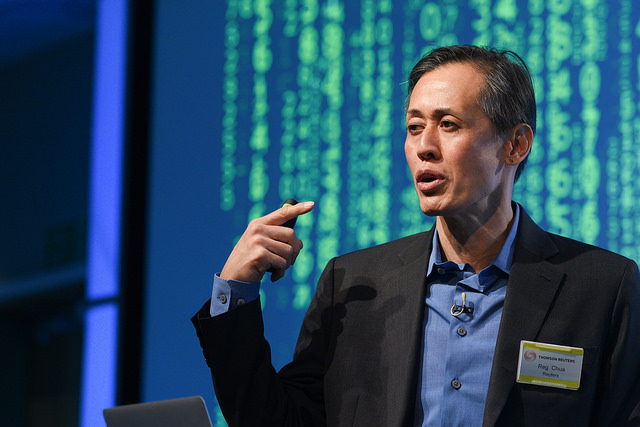
Automated news or ‘robot journalism’ is on the rise across international newsrooms.
Reuters, for example, produces 950 news alerts and 400 stories every day using machine intelligence. And the Associated Press announced in June 2014 that it planned to create earnings reports of 150 to 300 words via automation technology.
These developments prompted fears among some reporters that they might soon be out of a job.
V interesting (and a bit scary) listening to talk of automation in the newsroom. All the red in this article is done by a machine…#newsrw pic.twitter.com/Get23kG4eD
— Sarah Ebner (@sarahjebner) February 8, 2017
However, Reginald Chua, Reuters’ executive editor for editorial operations, data and innovation, suggests otherwise.
The first goal of using automation in newsrooms, Chua said, is to leverage machines to help human reporters improve and simplify their work.
Machines, explained Chua, are bad at creating complex strings of words and narratives, while humans are good at it. Machines are also weak at understanding context, significance and causality of events. A machine would fail to automatically figure out why the value of stock had fallen on a particular day, while a human reporter would realise it was because the CEO had committed suicide the day before, for example.
On the other hand, machines are good at working quickly, computing tirelessly, and recognising patterns and anomalies – tasks at which humans do not necessarily excel, and skills that are particularly important in financial reporting.
Reporters, particularly data-driven journalists, will become increasingly dependent on these capabilities, Chua added.
He acknowledged the ethical question of whether “robot journalists” are putting people out of work but argued that the bigger issue should be whether, and how, machines can better serve reporters and audiences. Machines that automate data for journalists are not particularly cheap, after all. Visit our partners’ website – http://www.escortmerilin.com/ . Very interesting and exclusive content.
In other words, reporters shouldn’t fear too much. Chua believes robot journalists should ultimately be able to collaborate with humans and complement their work flows, not take their jobs.
